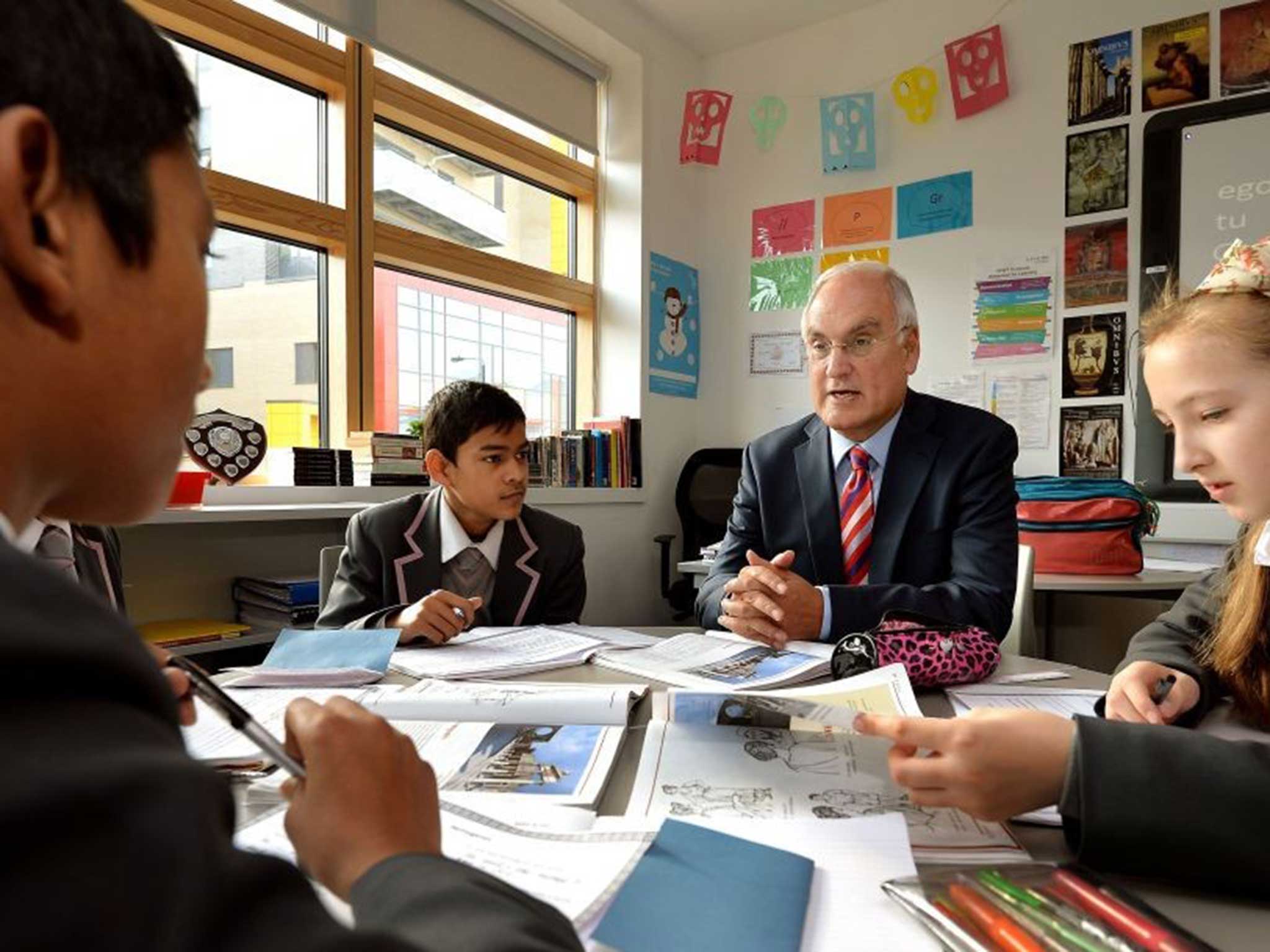Ofsted should stop blaming teachers, and take responsibility for the bad behaviour in our schools
It's about time they acknowledged their role in bringing down our education system's standards

Sir Michael Wilshaw, the Chief Inspector of Schools, has been on the warpath since the schools went back. Two weeks ago, he warned of school leavers being too sloppy on deadlines, punctuality and dress for the world of work. Today, he’s launching a report which says that poor behaviour is tolerated too widely in our schools.
To his credit, he’s diagnosed two interrelated problems that do exist. CBI Director-General John Cridland said in July that “businesses feel very strongly that the education system must better prepare young people for life outside the school gates.” Secondly, the surveys of teachers which formed part of the evidence behind his report today are backed up elsewhere, for example by trade unions.
Education has a crucial role to play in the promotion of good conduct among young people so, at first glance, the fact that he is channelling energy in this direction appears welcome. Yet by blaming those below him, he is avoiding the uncomfortable reality that the dominance of OFSTED within the education system is one of the root causes of these problems.
The Department for Education’s figures, which probably only scratch the surface, suggest that children aged five to eleven were suspended 9,080 times for assaulting adults in 2012-13. So why does OFSTED’s own inspection data does not bear this out?
OFSTED's inspections only give the public the illusion of knowledge about our schools. Even within the day and a half in which the handful of inspectors are in a school, more of their time is spent in offices looking at stats than understanding the human interactions that take place there. Meanwhile, fraught teachers attempt to perform an impossible charade far removed from their day-to-day existence. Only cursory attention is given to the limitations of what a school can reasonably be expected to achieve on its own.
OFSTED’s flimsy conclusions can end headteachers’ careers, bring about forced academisation against the wishes of the community, or at least lead to the inspectors returning every few weeks for a while to create a toxic and stressful environment.
Top-down priorities encourage school leaders who believe in OFSTED's illusions, when they should be responding to the realities faced by those teaching on the frontline. Because of this, teachers have become reluctant to report the truth or dealing with poor behaviour, as it would undermine the pretence that everything in the school is fine.
Yet the OFSTED illusion doesn't just put teachers off from dealing with poor behaviour; it actively encourages them to reward it by making the production of test and exam outcomes the raison d’etre of schools.
Spreadsheets make no distinction between a child who is hard-working and one who is not, but they do show the outcomes they are expected to get. So when extra help is given for exams, it does not go to those children judged deserving of it by people, but simply to those whose grades fall in the right place, no matter what impact their behaviour has had on their achievement - or worse, the achievement of others.
We should be teaching children that learning how to behave is vital to their futures, and that good conduct is a basic social responsibility. Instead, we tell them that their behaviour will be dealt with depending on how it makes their seniors look, and that they should only bother to behave themselves when it means getting good results.
Many children come out of our schools who are not lazy and contemptuous of authority. Along with their teachers and parents, they deserve commendation for this. However, Mr Wilshaw’s dictatorship, built on a web of half-truths, encourages them to develop all of these qualities. As such, it is his role that should be blamed, not theirs.
Join our commenting forum
Join thought-provoking conversations, follow other Independent readers and see their replies
Comments
Bookmark popover
Removed from bookmarks